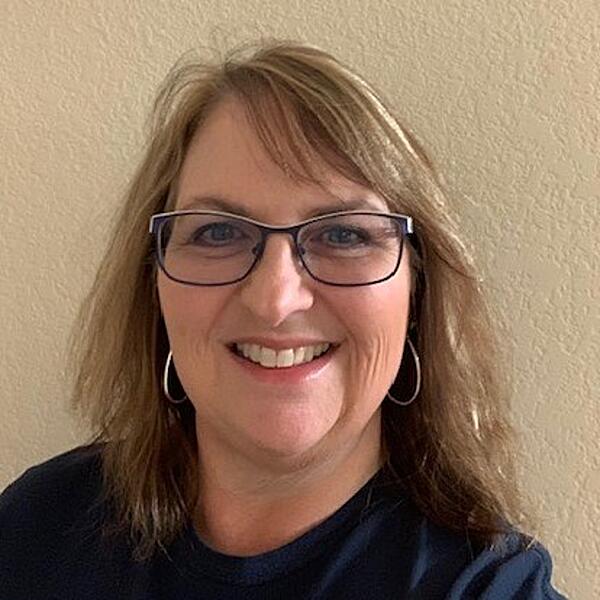vcfo VIBE December, 2020 Newsletter


This is a question my husband and I get asked regularly, usually following a few minutes of conversation with us. You may think that it is a simple question for us to answer, but it is not.
Are they curious about my accent, or my skin tone, or the origins of my name, or my citizenship? Or do they just want to know where I live? My now standard answer – My parents are from India, I was born and brought up in Zambia, I have spent most of my life in the UK and am a British citizen, and I now live in Dallas, Texas.
Am I Indian? I have Indian heritage and I speak Gujrati, but I have never lived in India and I do not fully associate myself with Indian culture. Am I Zambian or African? I can claim Zambian nationality as I was born there, but I’m not native to the continent and would not conventionally be considered to be African. Am I British? I have a British passport but I’m not English or Anglo/Saxon.
People feel the need to categorize other people, to identify if they are friend or foe, part of their tribe or not. This need is an evolved response to fear of what they do not know or understand. Categorizing people has also evolved out of the desire for one category of people to exert power and control over another.
Everywhere I have lived, I have been part of a less powerful group, and have suffered discrimination as a result. But neither my race, ethnicity nor nationality truly define who I am. So, do any of these descriptors have relevance in a world where people are globally mobile and intermingled?
I probably have more in common with a white American male from New York City than that man has in common with a white American male from rural Alabama. But I am regarded as an outsider and a “minority”. I have fewer rights and opportunities. My voice is less heard.
Perhaps when we stop using race, ethnicity, nationality and even gender as primary descriptors of people, that is when we can start working towards equity for all people.
My name is Sweta. I am a Chartered Accountant and Consultant. I live in Dallas, Texas.
By the way, my husband is from the former Soviet republic of Belarus, of Jewish heritage, and grew up in the San Francisco bay area after moving there in his early teens to escape persecution due to his heritage. He has also lived and worked in Detroit, Hartford, Wroclaw (Poland), and Charlotte.
Which always leads to the inevitable next question – how did we meet? Well, we met in a bar…on a ship…on the way to Antarctica. Of course!
Hopefully, this little personal insight will help you understand why I was happy to volunteer for the VIBE committee and why what we are trying to do is so important to me.

By Vira Trevino-Garcia
In the efforts to promote diversity, the recruiting process is one of the most vulnerable functions to be riddled with biases, including unconscious biases. Research consistently shows that in two resumes with the same qualifications, the resume with a name that “seems to be a white person” is twice as likely to be contacted for an interview over a resume of someone with a name that seems to be a minority. The unconscious, or in some cases conscious, bias of the recruiter makes it hard for candidates with ethnic sounding names to advance in the process.
Biases in the job description can occur when words are used that will discourage minorities to apply. Furthermore, when a candidate from an underrepresented group does make it to the interview process, they are less likely to get called back for a second interview even when their qualifications are equal.
The first steps to deconstructing bias in the process are easily implemented by any sized organization:
Removing the unconscious biases from the recruiting process is a must that every company should be doing.

Name: Laura Olson
Position: Corporate Accounting Assistant
Years with vcfo: 6 years
If you could pick one theme for vcfo to turn into a book about the company, what would it be?: Generosity. My friend, Cheryl Wilson, told me about her new job here and told me there was a potential job opening for corporate. Intrigued, I asked her more about the company and then I researched it. The core values on the website were displayed differently back then – I think it listed 10 values but giving back to the community was one of them. This was important to me as giving and generosity is a personal core value. In my role, I soon saw that it wasn’t a core value in word only, but was lived out. Now six years later, on our website, it isn’t just one of our core values but has now been elevated to one of the top three goals and is called vcfogives. I have seen our commitment to generosity grow and I’ve seen it manifested in vcfo’s accounts payable, and I see it personally in our leaders. We have all learned that giving not only blesses the recipient but also the giver. I believe vcfo continues to reap blessing because vcfogives continues to be a priority.
What are three words to describe vcfo?: Generous, experienced, and helpful.
What does diversity and inclusion mean to you?: I am a pretty simple person and to me it means we are all different from one another, yet we give room for that and treat each other with kindness. People are important. I am a mom to four, the differences in my kiddos were evident from the get go – even with the same DNA, environment, privileges, instructions, values, etc. We are different from the beginning and as we find our way through life, those differences may become magnified. My 54 year-old self doesn’t even agree with my 35 year-old self. I love all my kids, not just the ones that agree with me on certain things. My dad was drafted before I was born so I grew up all over the place. I had multiple elementary schools and attended three high schools in different countries. My friends rarely looked like me, nor were in my life longer than three years. Everyone’s story is unique. I know too well what being the “new kid” feels like and I hope that I am always aware of what it is like to feel out of place so that I will be the smile someone needs. Kindness and love draw people together and create a safe place. As a young stay-at-home mom in a new neighborhood, eager to make a friend, I discovered another young mom who recently gave up her job as a veterinarian to stay home. We were completely different in so many ways: values, faith, hobbies, food choices, future plans, and past experiences but we made room for all of that and became the best of friends. Those differences didn’t change but our friendship was highly treasured. I am also a first born and can be bossy, opinionated and set in my ways and I need people in my life to remind me to put love on. It is a choice and I hope to choose wisely more often than I miss it.

Equality – Equality means ensuring that everyone has the same opportunities and receives the same treatment and support.
Equity – Equity refers to the quality of being fair and impartial. It is about giving people what they need, proportionate to their own circumstances, in order to ensure that everyone has the same opportunities i.e. in order to create true equality of opportunity, equity is needed to ensure that everyone has the same chance of getting there.
Systematic – Systematic relates to an action that is done according to some system or organized method. Systematic is used when a behavior, however unintentional it may be, is so habitual that it seems to be the result of a system e.g. locking the door when leaving the house.
Systemic – Systemic denotes something that is deeply ingrained in the system and is typically used to describe a phenomenon that affects every part of an entire system e.g. systemic corruption in an agency.
The vcfo VIBE Committee wants all team members to be included and represented. Click here for a diversity calendar to see a wide variety of cultural and religious events from around the world.
Should you wish to do further research on your own time, we have provided recommended reading: How to Be an Inclusive Leader – Your Role in Creating Cultures of Belonging Where Everyone Can Thrive, by Jennifer Brown.
This is a publication of the vcfo VIBE Committee.
We are stronger when we are equal.